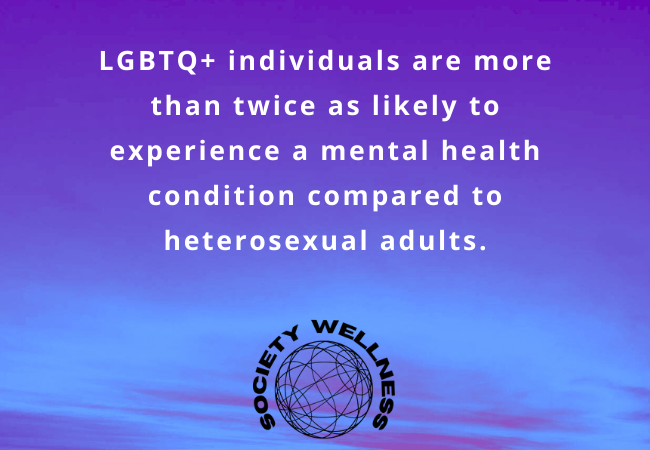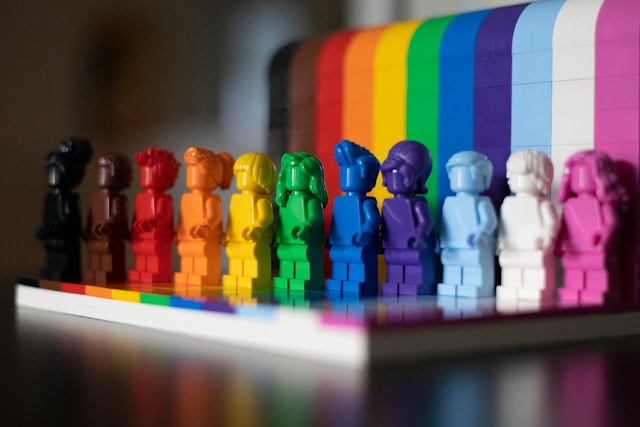For many in the LGBTQ+ community, the struggle for acceptance isn’t just external—it’s internal. Messages from family, religion, media, and society at large can plant seeds of doubt, fear, and even self-loathing. Over time, these messages may evolve into something far more destructive: internalized homophobia and deep-rooted shame.
While progress has been made socially and legally, many queer individuals still carry the emotional scars of rejection and suppression. Fortunately, Queer Therapy—a specialized, affirming approach to mental health—offers a healing path forward.
At our LGBTQ Behavioral Health Treatment Center in Massachusetts, we provide trauma-informed, identity-affirming care through LGBTQ Therapy in Massachusetts, LGBTQ Couples and Marriage Counseling, and comprehensive treatment programs like LGBTQ PHP and IOP. This blog will explore how Queer Therapy can help unravel internalized shame and build a stronger, healthier sense of self.
Understanding Internalized Homophobia: What It Really Means
Internalized homophobia occurs when LGBTQ+ individuals unconsciously absorb society’s negative attitudes toward queer identities and turn them inward. This can happen even in seemingly supportive environments, especially when people are exposed to years of homophobic language, rejection, or invalidation.
Common Symptoms of Internalized Homophobia:
- Feeling shame or guilt about your sexuality or gender identity
- Difficulty accepting love or compliments
- Avoidance of LGBTQ+ communities or spaces
- Judging other LGBTQ+ individuals for being “too out”
- Low self-worth and self-sabotaging behaviors
- Struggling with intimacy or commitment
Internalized homophobia isn’t a character flaw—it’s a learned response to societal stigma. But with intentional support and therapeutic care, it can be unlearned.
The Toxic Power of Shame
Shame tells you: “You are bad.”
Not that you made a mistake. Not that you did something wrong.
But that you, inherently, are broken.
For LGBTQ+ people, shame can stem from:
- Being told your identity is a “sin” or “disorder”
- Being bullied or ostracized in childhood
- Growing up in a culture where heteronormativity is the only norm
- Lack of representation or positive role models
Shame isn’t just painful—it’s isolating. It drives disconnection from others and from ourselves. Over time, it can spiral into depression, anxiety, substance use, or self-harm.
What Is Queer Therapy?
Queer Therapy, also referred to as LGBTQ+-affirming therapy, is a form of psychotherapy that specifically addresses the needs, traumas, and challenges faced by LGBTQ+ individuals. Unlike general therapy models, it recognizes that many struggles are not due to a person’s identity—but rather, the world’s reaction to it.
At our center, our LGBTQ Queer Therapy in Massachusetts is designed to:
- Celebrate and affirm your identity
- Explore how systemic oppression has affected your mental health
- Heal wounds from past trauma or discrimination
- Help you develop pride, confidence, and self-love
- Offer a safe space to unpack internalized homophobia and shame
How Queer Therapy Helps Heal Internalized Homophobia
1. Creates a Judgment-Free Zone
Therapists trained in queer-affirmative care offer validation instead of judgment. You’re never asked to explain or defend who you are.
2. Unpacks Learned Beliefs
Queer therapy helps you identify where your negative beliefs came from—whether it’s religion, family, or culture—and gently challenges their hold on your self-image.
3. Rebuilds Self-Compassion
Through therapy, you learn to replace self-criticism with self-compassion. Instead of “What’s wrong with me?” the mindset shifts to “I deserve love, too.”
4. Normalizes the LGBTQ+ Experience
You’re not alone, and you’re not abnormal. Queer therapy contextualizes your pain as a response to systemic forces—not a personal failure.
5. Strengthens Community Connection
Therapy often involves connecting clients with community groups, LGBTQ+ events, or peer support. Belonging is essential to healing.
Additional Ways Queer Therapy Supports Healing
Processing Religious Trauma
For many, religious indoctrination is at the root of internalized shame. Queer therapy gently deconstructs these harmful narratives while allowing space for personal spiritual exploration.
Reparenting the Inner Child
Therapists often work with clients to nurture the version of themselves that was told they were “wrong” or “disgusting.” This emotional reparenting builds strength and safety from within.
Addressing Intersectional Challenges
People who are BIPOC, disabled, or neurodivergent and queer face multiple systems of oppression. Queer therapy acknowledges these intersections and their compounded effects on shame.
The Role of Structured LGBTQ Mental Health Programs in Massachusetts
Individual therapy is powerful—but some people need a deeper level of care to truly address trauma and shame. That’s where structured programs come in.
LGBTQ PHP Treatment in Massachusetts (Partial Hospitalization Program)
Our PHP program provides intensive, structured treatment in a day-setting environment. It’s ideal for those navigating:
- Deep-rooted trauma or identity-based PTSD
- Co-occurring mental health challenges like depression or anxiety
- Severe internalized homophobia or suicidal ideation
Clients engage in:
- Group therapy with peers facing similar struggles
- One-on-one therapy sessions with LGBTQ-affirming clinicians
- Trauma-informed modalities like CBT, DBT, and expressive therapies
LGBTQ Intensive Outpatient Program in Massachusetts (IOP)
For individuals who don’t need full-day care but still require more than weekly therapy, our IOP offers flexibility and intensity.
This program supports:
- Continued work on shame and self-esteem
- Managing triggers in real-world settings
- Developing coping skills for relationships and emotional regulation
Both PHP and IOP allow you to heal without losing touch with your daily life and responsibilities—making them ideal for sustained transformation.

How Internalized Homophobia Affects Relationships
Even in loving relationships, unresolved internalized homophobia can create tension and mistrust.
Common Relationship Challenges:
- Insecurity and fear of abandonment
- Overcompensation or emotional withdrawal
- Sabotaging intimacy
- Comparing your relationship to heteronormative standards
- Projecting shame onto your partner
Through LGBTQ Couples and Marriage Counseling in Massachusetts, couples learn how to:
- Communicate more openly about identity-related struggles
- Rebuild intimacy and connection
- Support each other’s healing process
- Navigate external stressors like discrimination or family rejection
Specialized Programs at LGBTQ Behavioral Health Treatment Center Massachusetts
Our center offers a range of programs tailored to meet the diverse needs of the LGBTQ+ community:
LGBTQ PHP Treatment in Massachusetts
Our Partial Hospitalization Program (PHP) provides intensive, structured care for individuals requiring a higher level of support. This program includes individual therapy, group sessions, and psychiatric care, focusing on issues like internalized homophobia and associated mental health challenges.
LGBTQ Intensive Outpatient Program in Massachusetts
The Intensive Outpatient Program (IOP) offers flexible scheduling for individuals who need substantial support but do not require full-day care. The IOP includes therapy sessions, skill-building workshops, and community integration activities.
LGBTQ Couples and Marriage Counseling in Massachusetts
Our couples counseling services address the unique dynamics of LGBTQ+ relationships. Therapists help partners navigate challenges related to internalized homophobia, communication barriers, and societal pressures.
Why Choose LGBTQ Behavioral Health Treatment Center in Massachusetts?
At our center, healing is more than a goal—it’s a promise. Our team is comprised of LGBTQ+ therapists, allies, and advocates who understand the nuances of queer identity and mental health.
What Makes Us Different:
- Clinicians trained in queer theory, trauma therapy, and cultural humility
- Safe, inclusive spaces for every LGBTQ+ identity
- Peer support and community-building
- Holistic healing including mind, body, and spirit
- Custom treatment plans, whether you need outpatient therapy or full PHP care
Our mission is to help you shed the shame, silence the inner critic, and fully embrace who you are—with pride.
Conclusion
Internalized homophobia and shame can be significant barriers to living an authentic and fulfilling life. However, with the right support and therapeutic interventions, healing is possible. At our LGBTQ Behavioral Health Treatment Center in Massachusetts, we are committed to providing compassionate, affirming care to help individuals overcome these challenges.
If you or someone you know is struggling with internalized homophobia or related issues, we encourage you to reach out. Our team is here to support you on your journey toward self-acceptance and well-being. Contact us today at 888.964.8116 to learn more about our services and how we can assist you.
FAQs on Queer Therapy
What is internalized homophobia?
Internalized homophobia occurs when LGBTQ+ individuals absorb society’s negative views about queer identities and turn them inward, leading to shame, low self-esteem, and self-rejection.
How does queer therapy address internalized shame?
Queer therapy helps clients identify and challenge harmful beliefs, validate their experiences, build self-compassion, and foster pride in their identity—all in a safe, affirming space.
Who benefits from LGBTQ Queer Therapy in Massachusetts?
Anyone within the LGBTQ+ community struggling with identity, mental health challenges, trauma, shame, or relationship issues can benefit from queer-affirmative therapy.
What is the difference between PHP and IOP in LGBTQ therapy?
PHP (Partial Hospitalization Program) offers structured, day-long treatment for intensive support. IOP (Intensive Outpatient Program) provides flexible, ongoing care while maintaining daily responsibilities.
Can couples struggling with shame seek LGBTQ Couples Counseling in Massachusetts?
Yes. LGBTQ Couples and Marriage Counseling helps partners navigate internalized homophobia, rebuild trust, and support each other in healing and self-acceptance.
Is queer therapy faith-affirming or spiritual-friendly?
Yes. At LGBTQ Behavioral Health, therapy can include unpacking religious trauma or exploring affirming spiritual paths in a non-judgmental, inclusive environment.
What makes LGBTQ Behavioral Health Treatment Center in Massachusetts unique?
Our center offers identity-affirming care, trauma-informed therapy, community connection, and access to multiple levels of support from expert LGBTQ+ clinicians.
How do I know if I need LGBTQ Mental Health Programs in Massachusetts?
If you experience depression, anxiety, shame, relationship struggles, or identity-related distress, our programs can provide the structure and support you need to heal.

